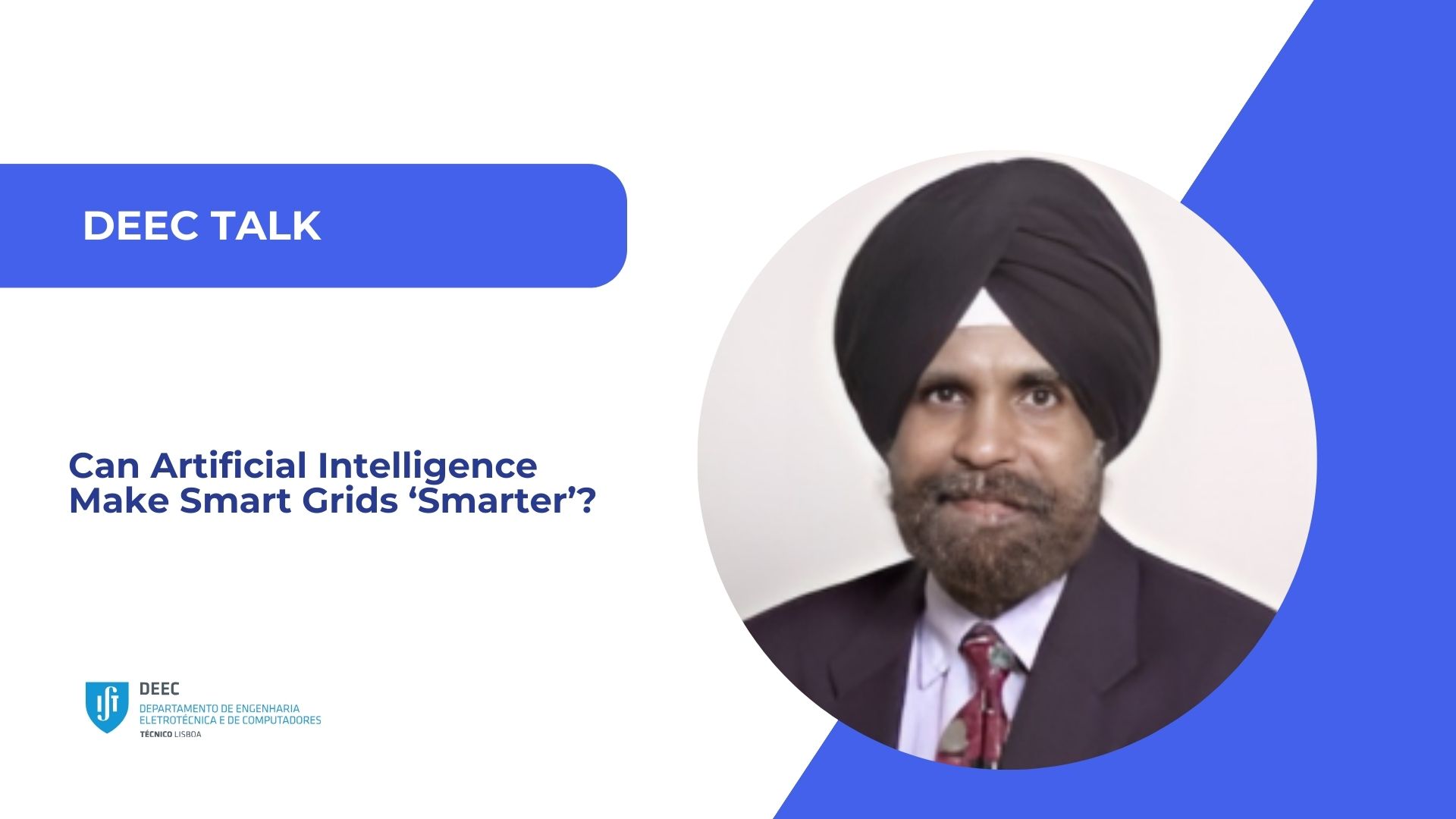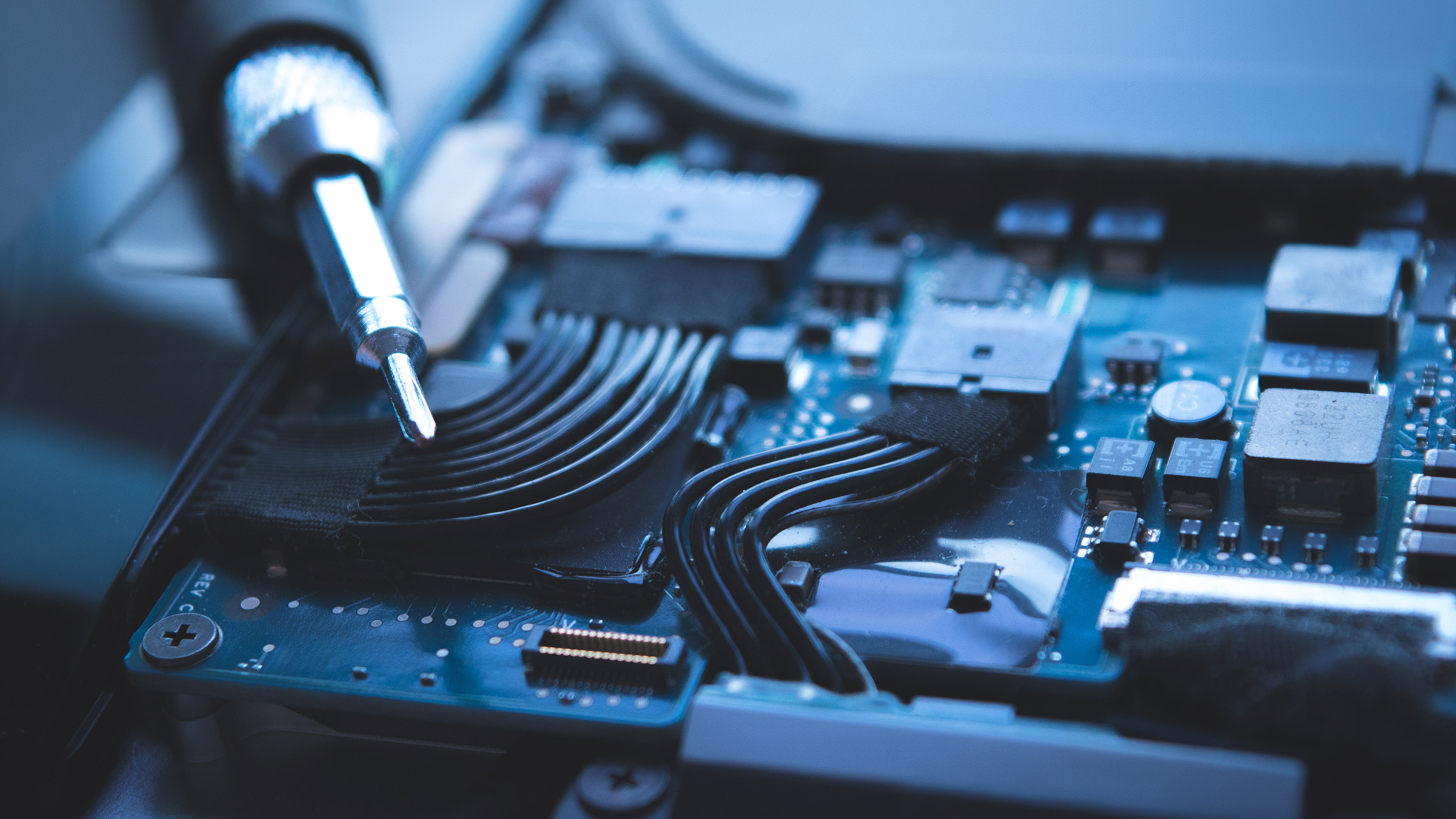DEEC TALK with Dr. Tarlochan Sidhu

On April 9th, the lecture "Can Artificial Intelligence Make Smart Grids ‘Smarter’?" will take place at 1:00 PM in the EA1 auditorium. The session will feature Dr. Tarlochan Sidhu, Professor at Ontario Tech University, Editor-in-Chief and Founder of the International Journal of Emerging Electric Power Systems, and Fellow of several prestigious institutions, including IEEE, IET (UK), and the Canadian Academy of Engineering.
Presenter’s Biography
Dr. Tarlochan Sidhu holds a B.E. (Hons.) from Thapar Institute of Engineering, India, and M.Sc. and Ph.D. degrees from the University of Saskatchewan, Canada. From 1990 to 2002, he was a Professor and Graduate Chair at the University of Saskatchewan's Department of Electrical Engineering. He then served as Professor and Chair of the Electrical and Computer Engineering Department at the University of Western Ontario until 2011, where he also held the NSERC/Hydro One Networks Senior Industrial Research Chair in Power Systems Engineering. Since 2012, Dr. Sidhu has been a Professor at Ontario Tech University, where he was Dean of the Faculty of Engineering and Applied Science from 2012-2020.
Dr. Sidhu has published over 300 papers, holds several international patents, delivered numerous invited talks, and provided consulting services to power industries worldwide. A recognized expert in smart grids, substation automation, and microgrids, he has supervised more than 50 Ph.D.s, Master’s, and post-doctoral students. He has contributed technical leadership to international working groups, including IEEE’s Power System Relaying Committee (PSRC) and CIGRE (France), and has helped develop international standards and guides for smart grids and substation automation. His contributions have earned him multiple awards, including the IEEE PSRC Distinguished Service Award in 2011.
Abstract:
The evolving challenges in modern power systems, particularly those associated with the global push for sustainable energy, climate change mitigation, and decarbonization, demand innovative and multifaceted solutions. These challenges arise from the increasing complexity of integrating renewable energy sources, reducing greenhouse gas emissions, and ensuring the resilience and adaptability of power infrastructure. Artificial intelligence (AI) has emerged as a promising and transformative approach to addressing these intricate and interdependent issues. By leveraging advanced computational techniques and insights from AI, researchers and practitioners aim to navigate the delicate balance between technological advancements, economic considerations, environmental imperatives, and societal needs.
In the realm of smart grids, AI has the potential to redefine traditional power systems by enabling the seamless integration of advanced communication, computational, and automation technologies. Smart grids represent a critical evolution of the power sector, designed to enhance efficiency, reliability, and sustainability. AI techniques, such as machine learning, neural networks, and generative algorithms, can play a pivotal role in optimizing grid operations, forecasting demand, managing distributed energy resources, and improving overall system performance. However, the application of AI in smart grids is not without its challenges and skepticism. Significant concerns have been raised about the technical feasibility, scalability, and long-term reliability of AI-driven solutions in this domain. Additionally, ethical and operational questions regarding the deployment of such technologies remain, prompting ongoing debate about their ultimate utility and viability in solving the unique challenges of smart grids.
This talk will delve into the key areas where AI methodologies may enhance the performance, flexibility, and adaptability of smart grids. Specific attention will be given to identifying the challenges and opportunities associated with integrating AI into power systems, from the technical and operational hurdles to the broader economic and societal implications. To illustrate the potential of AI in this context, the discussion will highlight findings from three research projects that investigate its feasibility in addressing targeted problems within smart grids. These projects explore the application of neural networks and generative AI techniques in critical areas such as protection and monitoring of grid infrastructure, strengthening cybersecurity, and advancing intelligent asset management. The insights derived from these studies not only underscore the potential of AI to revolutionize smart grid technology but also illuminate the pathways to overcoming the barriers to its adoption.
